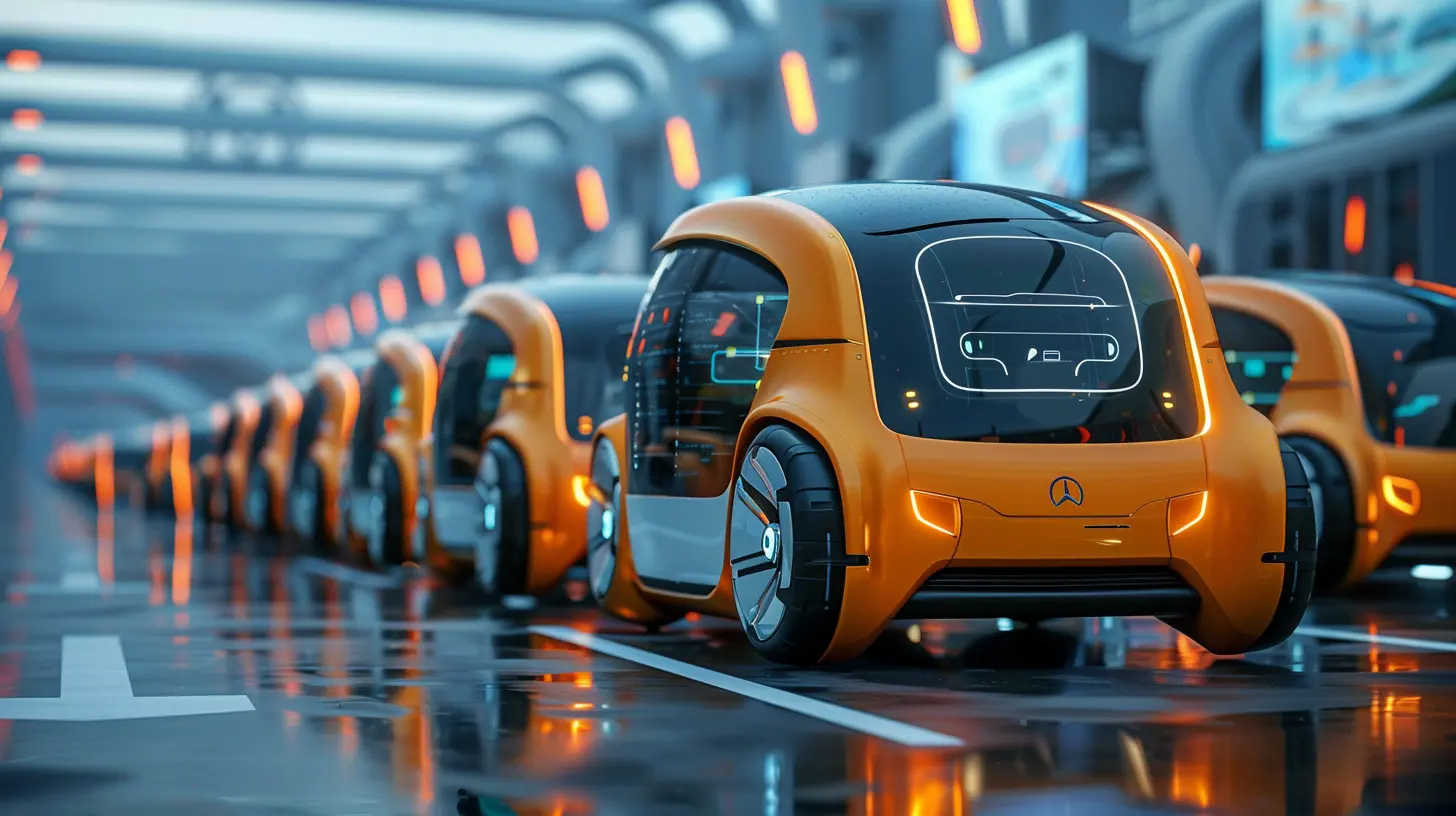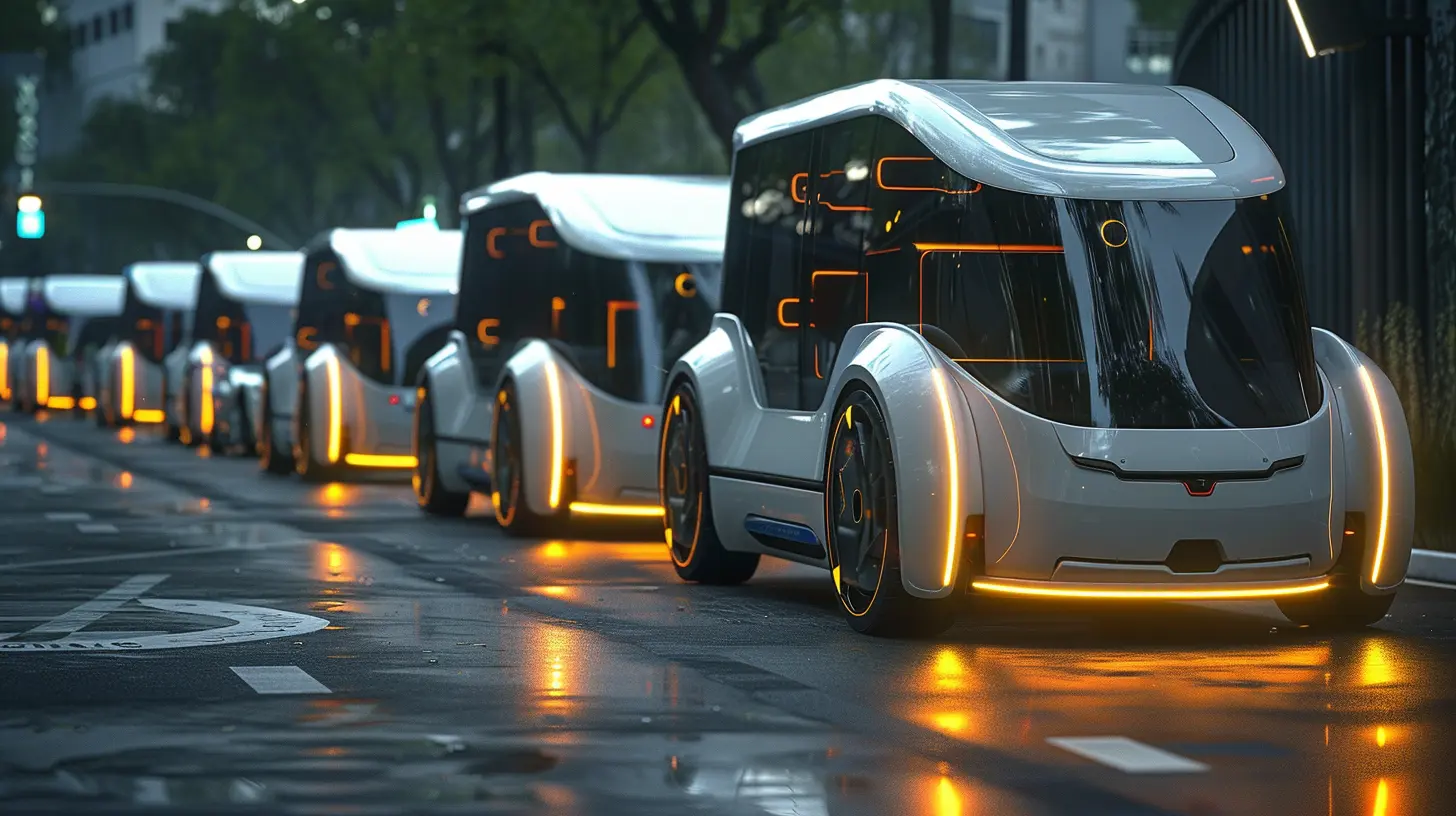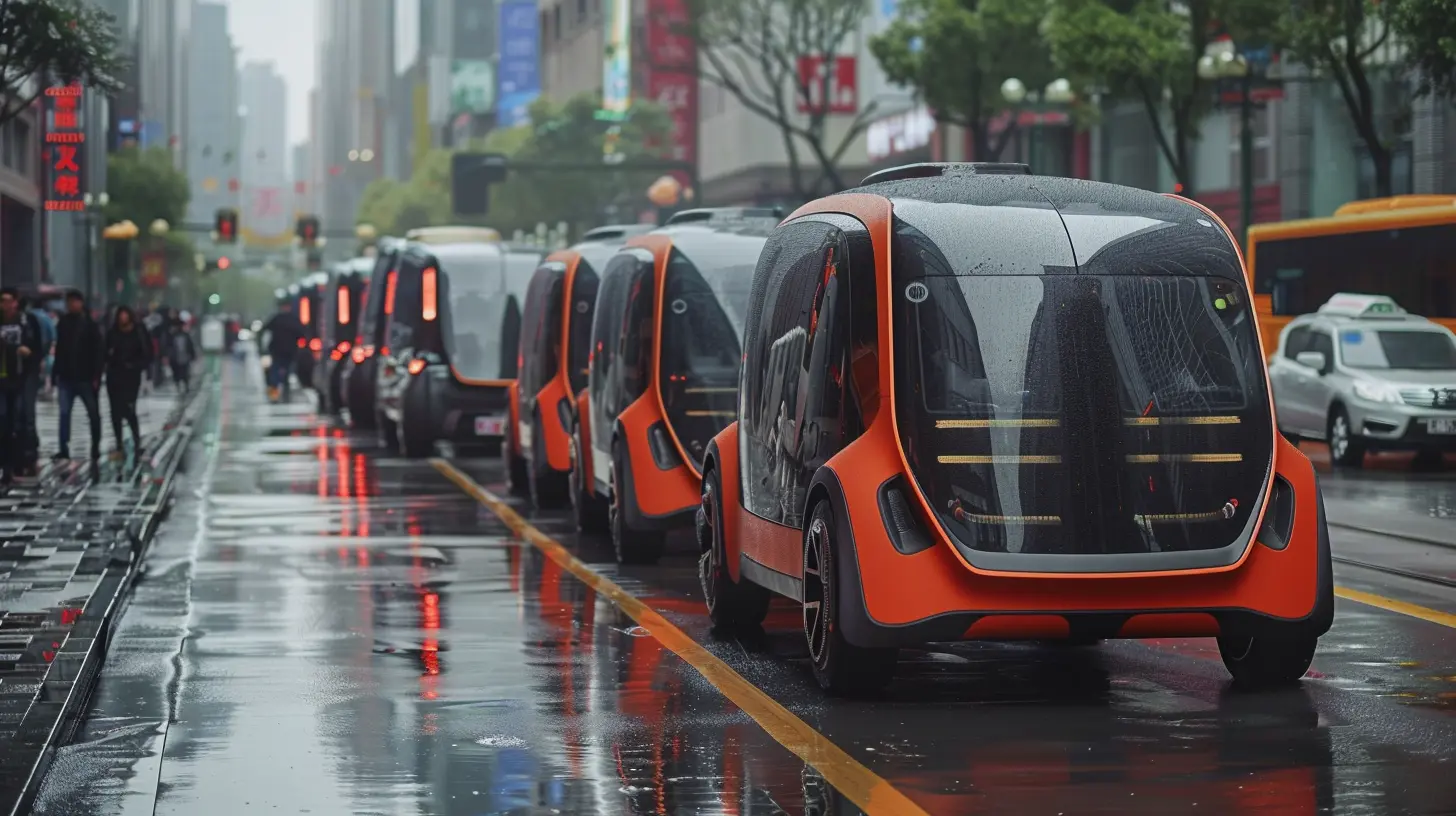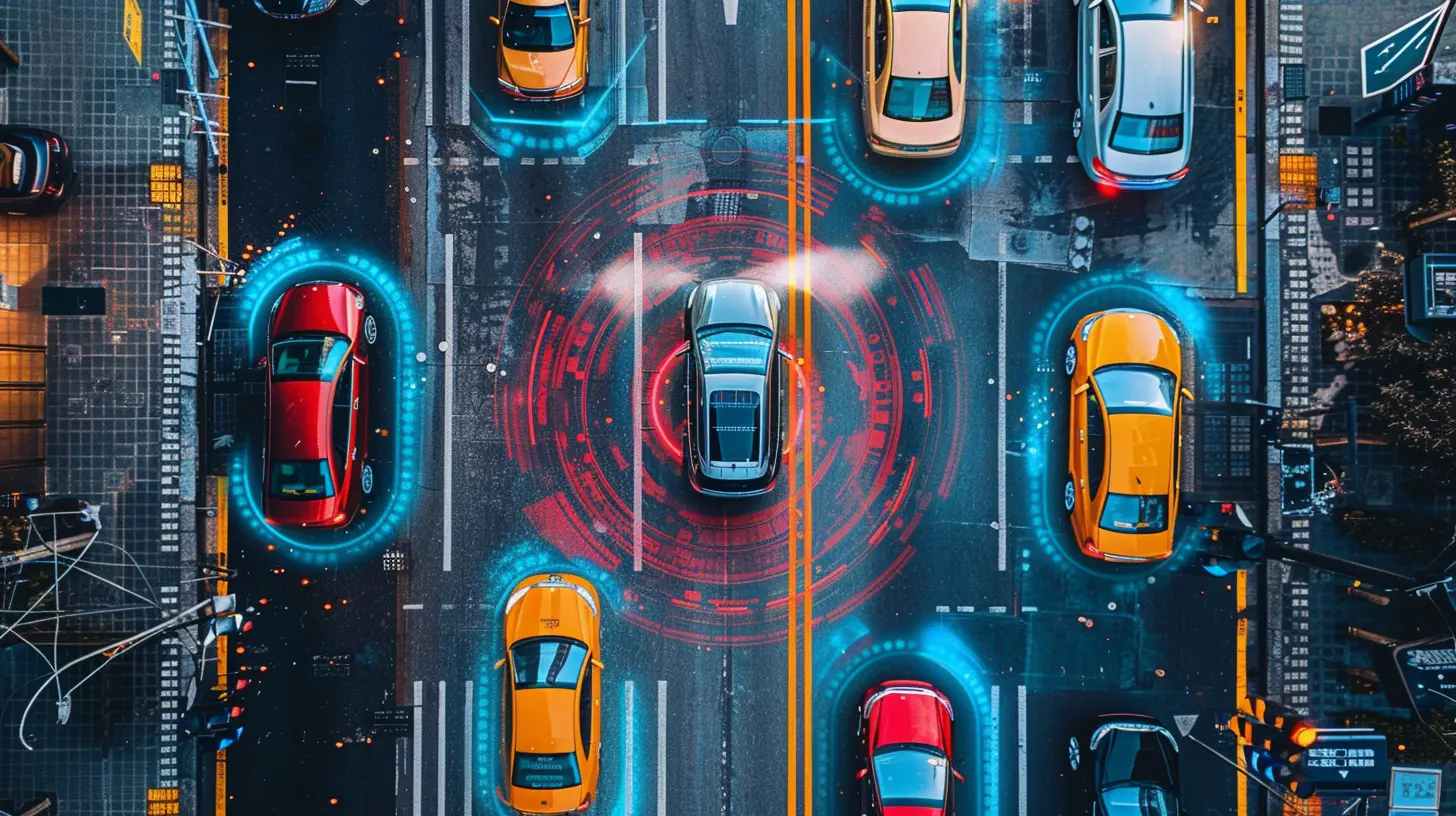Can Autonomous Vehicles Solve Parking Problems in Urban Areas?
19 June 2025
Let's face it—parking in cities is a nightmare.
You drive around for ages looking for a spot, only to find one that's either too tight, too expensive, or just too far from your destination. Sound familiar? You're not alone. Parking headaches are one of the most frustrating aspects of urban living. But what if I told you that autonomous vehicles—yes, those smart, self-driving cars—might be the game-changer we've been waiting for?
Sounds futuristic? Maybe. But it's not as far off as you might think. Let’s dive into how autonomous vehicles (AVs) could reshape urban parking, and whether they can truly solve the problem we're all sick of dealing with.
What’s Causing the Urban Parking Mess?
Before we jump into solutions, we've got to understand the root of the problem. Cities were never really designed for cars—especially not the sheer number of vehicles we have now. The streets are packed, space is limited, and let's be real, everyone wants a convenient spot right outside their destination.Let’s break it down:
- Overpopulation in Urban Areas: More people = more cars. It's that simple.
- Poor Parking Infrastructure: Narrow streets, limited parking lots, and outdated urban planning only add to the chaos.
- Inefficient Use of Space: Did you know that on average, cars are parked 95% of the time? That’s a lot of land just sitting idle with cars doing nothing.
All of this adds up to one thing: a toxic mix of traffic congestion, wasted fuel, and not enough space to go around.
Enter: Autonomous Vehicles (AVs)
Autonomous vehicles are not just about cool tech and avoiding the need to hold a steering wheel. These smart cars can drive, park, and navigate without human input. With cameras, sensors, GPS, and AI doing all the hard work, AVs could be the answer to many of our urban dilemmas.But can they really fix the parking fiasco?
Let’s break it down.
1. Self-Parking: The Obvious Fix
Okay, so here’s the big-ticket item: autonomous vehicles can park themselves. You hop out at the front door, and your car drives off and finds the nearest available spot—on its own. It could even head to a designated AV-only parking zone miles away where space is cheaper and more abundant.Boom. No more circling the block like a vulture.
And when you're ready to leave? Just call it like an Uber, and it’ll meet you at the curb. Game. Changer.
What Makes Self-Parking Possible?
AVs use a combo of LiDAR, radar, cameras, and artificial intelligence to sense their surroundings and maneuver through tight spaces. This means they can park with millimeter precision—something most humans struggle with, let’s be honest.This ability allows for:
- Smaller Parking Spaces: No need to open doors = cars can park closer together.
- Stacked Parking Management: AVs can work in tandem, coordinating entry and exits more efficiently.
- Reduction in Human Error: Forget dented bumpers and crooked parking jobs.
2. Reducing the Need for Parking Altogether
Here’s an interesting thought: what if cars didn’t need to park at all?If AVs were used in a shared model—like robo-taxis or autonomous shuttles—they could keep moving almost 24/7. One drop-off here, another pickup there. It’s like carpooling on steroids.
How Does This Help?
- Less Idle Time: If the car is constantly in use, there’s less need for parking in major hubs.- Fewer Cars on the Road: Shared AV services mean people don’t need to own cars, which in turn reduces the total number of vehicles.
- Reclaim Public Space: Imagine all those parking garages and street parking zones turned into parks, pedestrian walkways, or cafes. Urban paradise, right?
3. Smart Routing to Available Spaces
Even if AVs still need to park, they're ridiculously good at finding a spot.With real-time data and access to smart city infrastructure, they can be directed to available parking with zero guesswork involved—no more stopping every few feet to check if a spot’s free.
Imagine a system where your car knows where to go, how long it’ll take, and whether that space is still free—before you even think about parking. That’s not just convenient; it’s efficient.
4. Reduced Traffic Congestion
Here’s something we often overlook: a huge chunk of city traffic comes from drivers just searching for parking. In fact, some studies estimate that up to 30% of urban traffic is just that.Now, imagine eliminating that entirely.
With AVs either self-parking efficiently, circling fewer miles, or being part of a shared fleet that rarely parks at all, we clear the roads—almost literally.
5. Reimagining Urban Planning
If AVs take over, what does that mean for city layouts?Well, cities could be completely reimagined. Planners could design neighborhoods that prioritize people over parking. Think:
- Wider sidewalks
- Green spaces and urban gardens
- Outdoor seating areas
- Less asphalt, more beauty
It's not just a parking fix—it’s a lifestyle upgrade.
What Are the Challenges?
Let’s pump the brakes for just a sec. As dreamy as this all sounds, it's not completely foolproof.Technology Hurdles
Not all AV systems are created equal. Some are still in beta, and the tech has a long way to go, especially in unpredictable city environments with pedestrians, cyclists, and crazy weather.Infrastructure Lag
Just because we have smart cars doesn't mean we have smart cities… yet. Most urban areas aren’t ready to fully support AVs, let alone re-design themselves around them.Legal and Ethical Concerns
There are still open questions about liability, insurance, and data privacy. Who’s at fault in a crash? How do we ensure AVs make ethical decisions?Public Resistance
Let’s face it—people love their cars. Convincing someone to give up their privately-owned vehicle for a shared AV might take time, even with all these perks.Real-World Examples: Are We There Yet?
We’re seeing promising signs all over the globe:- Waymo (USA): Their self-driving taxis in Phoenix are already picking up real passengers—no drivers needed.
- Cruise (San Francisco): These autonomous cars are operating in busy streets and even handling tricky downtown conditions.
- China and Europe: Several cities are testing AV pilot programs that include autonomous parking and rideshare services.
While we’re still in the early chapters of this story, the narrative is starting to take shape.
So… Can Autonomous Vehicles Solve Parking Problems?
Here comes the million-dollar question.Can AVs end parking nightmares for good?
The short answer: they can help. A lot.
By enabling self-parking, slashing the need for parking space, improving traffic flow, and supporting new urban designs, autonomous vehicles could absolutely revolutionize the parking game. But it won’t happen overnight. The technology, infrastructure, and policy all need to evolve together—and that takes time.
So while we're not quite there yet, we're heading in the right direction. And honestly, as someone who’s spent 15 minutes circling a block in search of a spot, I’ll take whatever progress I can get.
Final Thoughts
Autonomous vehicles offer a tantalizing glimpse into a future where parking isn’t the daily pain it is now. A future where cars drive us—not the other way around—and then respectfully bow out of the way.Sure, there are hurdles to clear. But the potential is too big to ignore. So the next time you're stuck in a traffic jam just because someone’s trying to parallel park (🤦♂️), remember—change is coming.
And it's rolling in on four AI-powered wheels.
all images in this post were generated using AI tools
Category:
Autonomous VehiclesAuthor:

Kira Sanders
Discussion
rate this article
3 comments
Cody Robinson
Smart cars, seamless spaces: urban bliss.
June 21, 2025 at 4:33 AM

Kira Sanders
Thank you! Smart cars can indeed enhance urban living by optimizing parking and reducing congestion, contributing to more seamless and efficient spaces.
Aris Oliver
Autonomous vehicles could revolutionize urban parking by maximizing space efficiency and minimizing congestion. Embracing this technology not only enhances convenience but also paves the way for smarter, greener cities. The future is here!
June 19, 2025 at 10:50 AM

Kira Sanders
Thank you for your insightful comment! I completely agree that autonomous vehicles hold great potential to transform urban parking, making our cities more efficient and sustainable.
Vivian Stewart
Great article! The exploration of autonomous vehicles and their potential to tackle urban parking issues is fascinating. It’s exciting to think about how innovative technology might reshape our cities for the better. Looking forward to seeing these ideas come to life!
June 19, 2025 at 2:49 AM

Kira Sanders
Thank you for your kind words! I'm glad you found the exploration of autonomous vehicles exciting—it's an exciting time for urban innovation!



